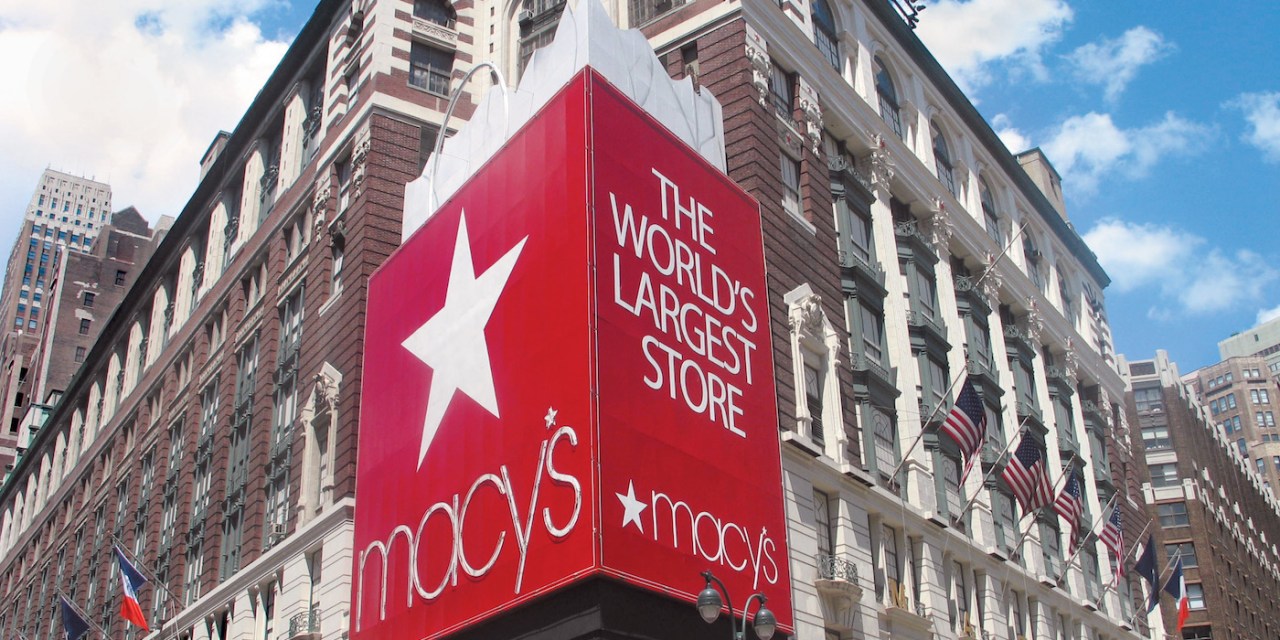What a Macy’s settlement says about in-app sales commissions

At end of April, an arbitrator concluded that Macy’s had unfairly locked workers out of sales commissions — all thanks to the company’s scan-and-pay app.
In 2018, Macy’s introduced its new scan-and-pay tool as a way for customers to view and purchase products in the Macy’s app even when shopping in store. All they needed to do was scan a barcode, and the item popped up. But the tool didn’t come with a way for salespeople to earn commissions on those in-app purchases, meaning that a salesperson who helps a customer would not make any money if that customer chooses to place the order in the app. The United Food and Commercial Workers International Union — which represents 11,000 of Macy’s 130,000 workers — challenged that policy, arguing that the lack of commission options violated Macy’s union contract. (Macy’s did not respond to a request for comment from Modern Retail.)
Last month’s arbitration decision is relatively limited in scope, but it is drawing attention to an under-the-radar issue in the retail world: as more and more retailers launch their own “scan and pay” apps, there’s a risk that sales floor workers will be locked out of commissions. But the ultimate reason that Macy’s now has to back off is more of a technicality — the arbitrator concluded that the retailer violated a clause in the union contract. For the vast majority of retail workers who are not unionized, that suggests that similar issues around sales commissions, if they do arise, may not have as clear of a path toward resolution.
It’s hard to say exactly how widespread these failures to apportion sales commissions to floor workers are. Retailers have been aware of the potential problem since 2014. Fernando Lemus, president of UFCW Local 1445, which represented the Macy’s workers, pointed out that he did know of some stores, including Bob’s Discount Furniture, that have proactively built ways for workers to earn commissions on online or in an app purchases after interacting with a sales associate. Other stores that offer scan-and-pay apps, meanwhile, do not pay their non-management workers commissions. Target, for instance, uses a scan-and-pay app similar to the one Macy’s introduced, but a Target worker group, Target Workers Unite, told Modern Retail that non-management employees at Target are paid strictly hourly.
Meanwhile, more retailers are looking into the type of technology. The software company Scandit concluded after a recent study that 60% of retailers have either launched a mobile scanning system or aiming to “imminently.”
Stephanie Luce, a professor of labor studies at the City University of New York, noted that commission-based sales structures are declining in importance overall across the retail sector. Luce said that fewer retail workers are reporting that they have commissions built into their pay — instead, she said, they’re shifting toward pure hourly jobs. (Commission rates in stores are also falling, according to a 2012 study she conducted.)
Few reported cases along the lines of Macy’s seem to exist, though in the past some retailers — like the now-defunct Canadian chain Le Chateau — have said they were struggling with the issue. “All of the retailers are trying to find out how to recalibrate,” Le Chateau’s senior vp of sales and operations said in 2016.
Ad position: web_incontent_pos1
Vincent Quan, a professor of business at the Fashion Institute of Technology, said that this issue will only become more pressing in the coming months. Because of “the acceleration of contactless transactions further exacerbated by the pandemic,” he said in an email to Modern Retail, “the scan and pay app was born.” Now that customers are moving back in stores, that increased access to scan and pay might pose challenges for retail workers, and Quan said that many scan-and-pay apps are unprepared to factor in commissions.
He added that, in many cases, these apps “would have to be reprogrammed” with the ability to identify salespeople. And even if they are reprogrammed, “for many retailers who also have scan and pay apps, it would be extremely difficult to ensure that a customer identifies the sales associate before consummating the purchase.”
Lemus, the president of UFCW Local 1445, said that Macy’s has yet to agree on a final solution with the union over how to proceed with scan-and-pay commissions. He said he’s pushing for a solution that will involve assigning each employee a unique code, and adding an option to the Macy’s app at checkout where customers are asked to input that employee code if a salesperson helped them. But he said that other options, including Macy’s excluding UFCW employees from the app entirely, are also on the table.
Lemus noted that while he hoped the Macy’s decision would apply to all Macy’s workers, regardless of their unionization status, he said that he doesn’t know that all salespeople will be covered. “It’s clear that the company couldn’t do this in the other unionized stores represented by the UFCW,” he said. “Is the company going to implement the same settlement in the non-union world? We don’t know about that yet.”
If you’re a retail worker whose commissions have been impacted by these types of technological changes, please reach out.

